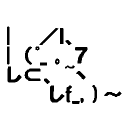結果
| 問題 | No.1224 I hate Sqrt Inequality |
| コンテスト | |
| ユーザー |
 tkr987 tkr987
|
| 提出日時 | 2020-09-12 02:18:20 |
| 言語 | C++17 (gcc 15.2.0 + boost 1.89.0) |
| 結果 |
AC
|
| 実行時間 | 129 ms / 2,000 ms |
| コード長 | 4,705 bytes |
| 記録 | |
| コンパイル時間 | 6,193 ms |
| コンパイル使用メモリ | 426,104 KB |
| 最終ジャッジ日時 | 2025-01-14 12:50:54 |
|
ジャッジサーバーID (参考情報) |
judge4 / judge2 |
(要ログイン)
| ファイルパターン | 結果 |
|---|---|
| sample | AC * 2 |
| other | AC * 13 |
ソースコード
#pragma GCC diagnostic ignored "-Wunused-variable"
#include <bits/stdc++.h>
//#include <atcoder/all>
using namespace std;
//using namespace atcoder;
#define BOOST
#ifdef BOOST
#include <boost/multiprecision/cpp_int.hpp>
#include <boost/multiprecision/cpp_dec_float.hpp>
using namespace boost;
using ml = multiprecision::cpp_int;
using md = multiprecision::cpp_dec_float_100;
#endif
/***** type *****/
using ll = long long;
using ld = long double;
using pll = pair<long long, long long>;
template <class T> using vt = vector<T>;
template <class T> using vvt = vector<vector<T>>;
template <class T> using vvvt = vector<vector<vector<T>>>;
/***** define *****/
#define all(c) (c).begin(), (c).end() // begin to end
#define coutld cout << fixed << setprecision(10) // cout double
#define output(x) do { cout << x << endl; exit(0); } while(0)
#define rep(i, b, e) for (ll i = b; i < e; i++) // repeat
#define repr(i, b, e) for (ll i = b; e < i; i--) // repeat reverse
#define fori(i, ...) if (ll i = -1) for(__VA_ARGS__) if (i++, 1)
#define each(i, e, c) fori (i, auto&& e: c) // for each
/***** const value *****/
#define llong_max 9223372036854775807 // 9 * 10^18
#define ldbl_max 1.79769e+308 // 1.7 * 10^308
#define pi 3.1415926535897932 // 3.14 ...
/***** lambda *****/
auto Ceil = [] // if (a % b != 0) return a / b + 1;
(auto x) { return (ll)ceil(x); };
auto Count = [] // long long count value
(auto b, auto e, auto x) { return (ll)count(b, e, x); };
auto CtoL = [] // char to number
(auto c) { return (ll)c - (ll)'0'; };
auto LtoC = [] // number to char
(auto n) { return (char)('0' + n); };
auto Pow = [] // long long pow
(auto a, auto b) { return (ll)pow(a, b); };
auto Pow2 = [] // long long pow2
(auto n) { return (1LL << n); };
auto Pow10 = [] // long long pow10
(auto n) { return (ll)pow(10, n); };
auto Size = [] // long long collection size
(auto& c) { return (ll)(c).size(); };
auto Sum = [] // long long accumulate
(auto b, auto e) { return accumulate(b, e, 0LL); };
/***** operator *****/
template <class T, class S> pair<T, S> operator + (pair<T, S> l, pair<T, S> r)
{ // pair<T, S> + pair<T, S>
return { l.first + r.first, l.second + r.second };
}
template <class T, class S> pair<T, S> operator - (pair<T, S> l, pair<T, S> r)
{ // pair<T, S> - pair<T, S>
return { l.first - r.first, l.second - r.second };
}
/***** template *****/
template <class T> void MakeVVT
(ll ys, ll xs, vvt<T>& v, T fill = T())
{ // vector<vector<T>> resize + fill
v.resize(ys); rep(y, 0, ys) v[y].resize(xs, fill);
}
template <class T> void MakeVVVT
(ll zs, ll ys, ll xs, vvvt<T>& v, T fill = T())
{ // vector<vector<vector<T>>> resize + fill
v.resize(zs); rep(z, 0, zs) MakeVVT(ys, xs, v[z], fill);
}
template <class T> void InputVVT
(ll ys, ll xs, vvt<T>& v, T fix = T())
{ // input vector<vector<T>> (T != struct) + fix
MakeVVT(ys, xs, v, fix);
rep(y, 0, ys) rep(x, 0, xs) { cin >> v[y][x]; v[y][x] += fix; }
}
template <class T> void InputVVVT
(ll zs, ll ys, ll xs, vvvt<T>& v, T fix = T())
{ // input vector<vector<vector<T>>> (T != struct) + fix
v.resize(zs); rep(z, 0, zs) InputVVT(ys, xs, v[z], fix);
}
/**************************************/
/********** BEGIN OF NYA LIB **********/
/**************************************/
namespace NyaGadget {}
namespace NyaGadget
{
/***** 素因数分解ライブラリ *****/
struct NT_PrimeFactorization
{ // 結果を格納する変数
std::map<long long, long long> res;
/**
* @note
* 計算量O(√N)でNを素因数分解する。
* ans[p]がmだったとき、素因数分解して得られた積のなかにm個の素数pが含まれていることを表す。
* 例えば n=12 のとき ans[2]=2、ans[3]=1 となるので 12=2×2×3 と分かる。
**/
decltype(res)& Run(long long N)
{
for (auto i = 2LL; i * i <= N; i++)
{
while (N % i == 0) res[i]++, N /= i;
}
if (N != 1) res[N]++;
return res;
}
/**
* @note
* Nに含まれる因数xの個数を返す。計算量O(log N)
* 例えば n=45、x=3 なら 45=3×3×5 で因数3の個数2を返す。
**/
long long Run(long long N, long long x)
{
long long ans = 0;
while (N % x == 0) ans++, N /= x;
return ans;
}
};
}
/**************************************/
/*********** END OF NYA LIB ***********/
/**************************************/
using namespace NyaGadget;
//using mll = NT_ModLL< 1000000007 >;
//using mll = NT_ModLL< 998244353 >;
int main(void)
{
ll a, b; cin >> a >> b;
NT_PrimeFactorization pf;
auto res = pf.Run(b / gcd(a,b));
each(i, e, res) if (e.first != 2 && e.first != 5) output("Yes");
cout << "No" << endl;
return 0;
}
